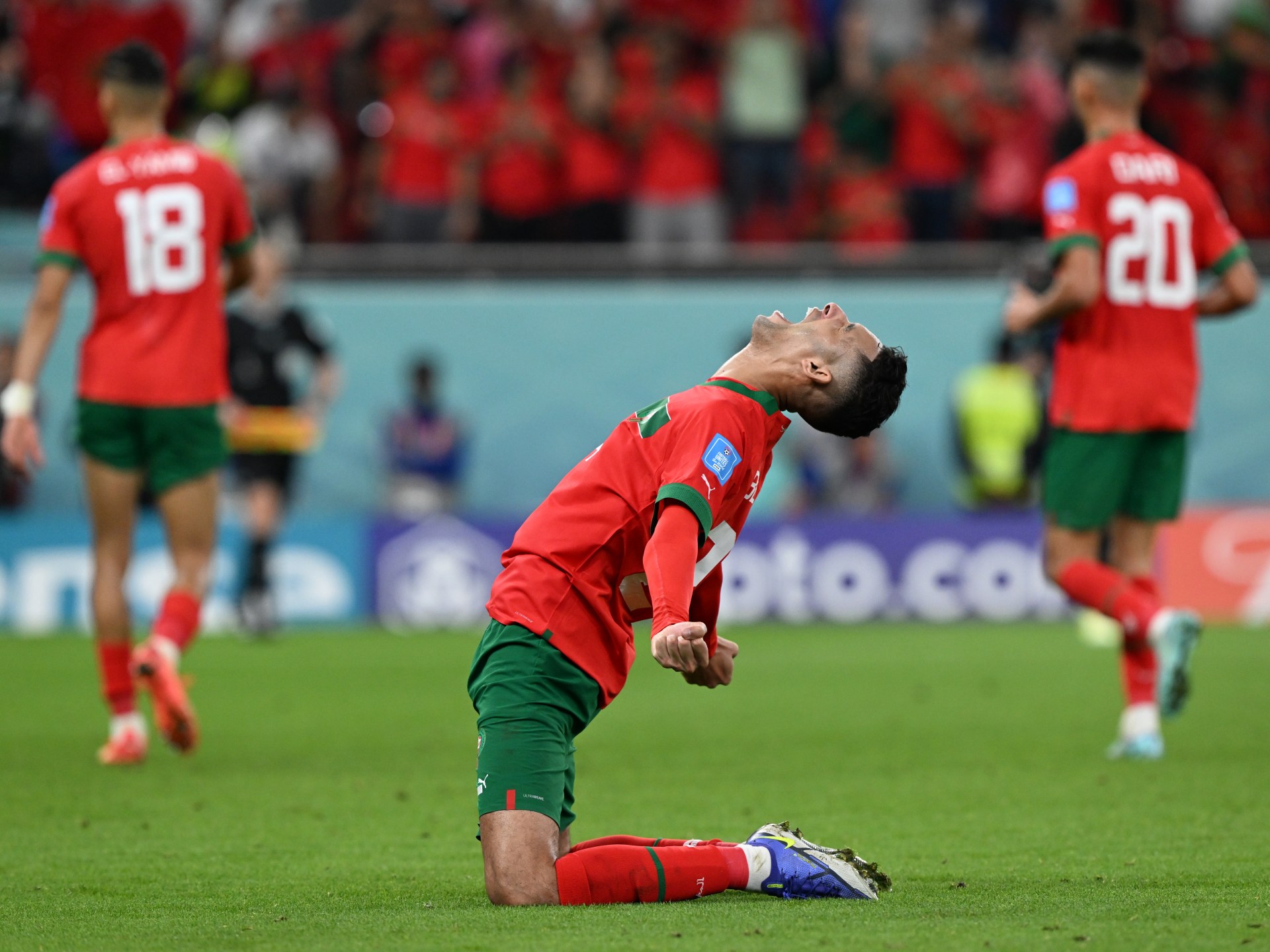After defeating Portugal with a goal without a response in the 2022 World Cup in Qatar today, Saturday, the Moroccan national team achieved a set of records that accompanied its historic achievement by reaching the semi-finals of the World Cup.
Here we review a list of the most prominent records achieved by the “Atlas Lions” thanks to their distinguished career in the World Cup in Qatar so far:
Morocco became the first Arab and African team to qualify for the World Cup semi-finals.
The Moroccan national team was the first African team to qualify for the quarter-finals of the World Cup since 2010. It is also the fourth African team to reach the quarter-finals of the World Cup, after Cameroon 1990, Senegal 2002, and Ghana 2010.
The Moroccan national team has the strongest defense in the World Cup in Qatar, according to the statistics of the International Federation of Football Associations (FIFA), as it has conceded only one goal since the start of the tournament.
It is also the most Arab team scoring goals in the history of the World Cup, with 19 goals so far.
As for the Moroccan national team coach, Walid Rekragui, he became the first Arab and African coach to reach the semi-finals.
During the Qatar World Cup 2022, Morocco became the first Arab team to top its group in the World Cup twice, and for the first time achieved two victories in the group stage of the World Cup, and the first Arab country to obtain 7 points in the group stage.
Moroccan national team player Hakim Ziyech has become the first Arab player to play 9 full matches in the World Cup, and has the fastest goal and the farthest goal for Arab teams (3 minutes and 30 seconds and a distance of 30.66 meters), thus becoming the third historical scorer for Morocco.
Youssef Al-Nusairi (the scorer of the winning goal against Portugal) is also considered the first Moroccan player to score in two editions of the World Cup.
Yassin Bounou, the goalkeeper of the Moroccan national team, became the first Arab goalkeeper to save two penalties in the history of the World Cup.

